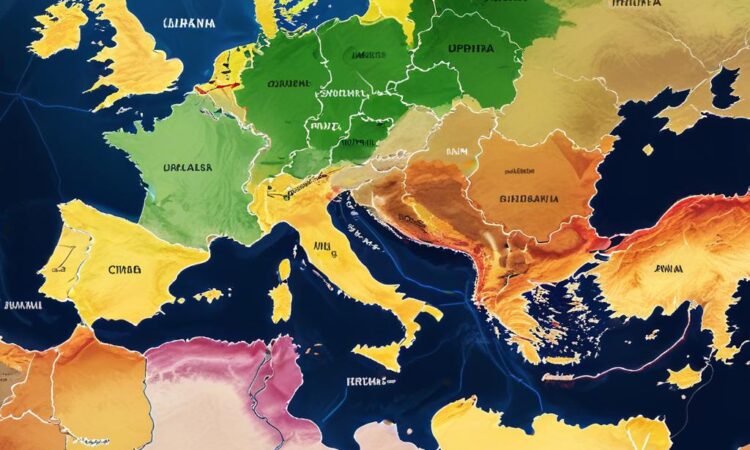Energy Crisis and Geopolitical Tensions: The War in Ukraine’s Impact
The ongoing war in Ukraine has sent shockwaves through the global energy market, triggering a severe energy crisis that is particularly acute in Europe. The conflict has disrupted energy supplies, driven up prices, and exposed vulnerabilities in the global energy system. This crisis has not only strained economies but also deepened geopolitical tensions, reshaping the world’s energy landscape.
The Impact on Energy Prices
The war in Ukraine has had a profound impact on energy prices, particularly for natural gas and oil. Russia, a major energy exporter, has reduced its gas supplies to Europe, leading to a surge in prices. European natural gas prices have skyrocketed, reaching record highs in 2022, putting immense pressure on consumers and businesses alike. The price hikes have been exacerbated by the increasing demand for energy as economies recover from the COVID-19 pandemic. The impact on energy prices has been far-reaching, contributing to inflation, eroding consumer spending power, and hindering economic growth.
Supply Chain Disruptions
Beyond price increases, the war in Ukraine has disrupted energy supply chains, creating a complex web of challenges. The conflict has disrupted the flow of energy resources, leading to shortages and increased reliance on alternative suppliers. The closure of the Nord Stream 2 pipeline, designed to transport natural gas from Russia to Germany, has further compounded supply issues. The dependence on Russian energy has been exposed as a major vulnerability for European countries, forcing them to scramble for alternative energy sources.
Geopolitical Tensions
The energy crisis has also intensified geopolitical tensions, exacerbating existing conflicts and creating new ones. The war in Ukraine has highlighted the geostrategic importance of energy security. European countries have been forced to re-evaluate their reliance on Russia and seek alternative suppliers, leading to a scramble for energy resources. The energy crisis has also heightened tensions between Russia and the West, as sanctions imposed on Russia have further strained relations. These tensions are likely to continue in the years to come, reshaping the geopolitical landscape.
Implications for the Future
The energy crisis triggered by the war in Ukraine has profound implications for the future of global energy. It has underscored the need for energy security and diversification, prompting countries to invest in renewable energy sources and reduce their reliance on fossil fuels. The crisis has also accelerated the transition to a more sustainable energy system, as governments and businesses seek to reduce their carbon footprint and mitigate climate change. However, the challenges posed by the energy crisis are complex and will require a coordinated global effort to address them.
The Road Ahead
The energy crisis resulting from the war in Ukraine poses significant challenges and opportunities. Navigating this complex landscape requires a multifaceted approach that prioritizes energy security, diversification, and sustainability. This will involve investing in renewable energy, strengthening energy infrastructure, and fostering international cooperation to create a more stable and resilient global energy system. The path ahead will not be without its challenges, but addressing the energy crisis presents a unique opportunity to build a more sustainable and secure future for all.

